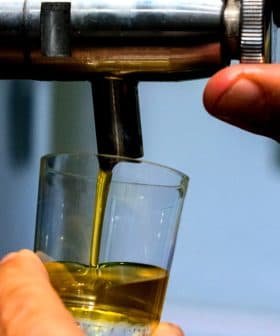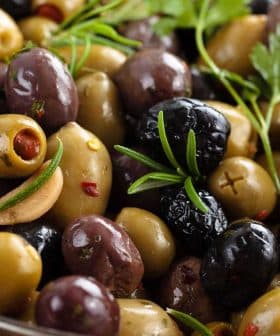Olive Oil Imports Reach Record in Brazil
Only the United States and Italy import more olive as consumption continues to grow in Latin America’s most populous country.
 Sao Paolo, Brazil
Sao Paolo, BrazilBrazilian olive oil imports have been steadily increasing over the past several years, reaching a record high of 76,816 tons in the 2017/18 crop year, with only the United States and Italy importing more olive oil than Brazil. The rise in imports is attributed to a slow recovery from economic crisis and a general increase in demand for higher quality oils among more affluent Brazilians, leading to a niche market for domestic producers.
Brazilian olive oil imports have been steadily increasing over the past several years. Over the course of the 2017/18 crop year, they rose by 28 percent to a record high of 76,816 tons.
Although we’re far from our best days, there are slight signs of recovery and this could account for this surprising number.
Only the United States and Italy import more olive oil than Brazil does and its consumption is continuing to grow in Latin America’s most populous country. Domestic production continues to slowly increase but accounts for less than one percent of what Brazilians consume.
Sandro Marques, author of the Guide to Brazilian Olive Oil and editor of Um Litro de Azeite, told Olive Oil Times his hypothesis to explain why imports keep keeping going up.
“We’ve always been a great oil importer and the impact of the economic crisis and general pessimistic outlook of the last years affected the imported volume,” he said. “Although we’re far from our best days, there are slight signs of recovery and this could account for this surprising number.”
See Also:The best olive oils from Brazil“Or not so surprising,” he added. “Since we’re just going back to a previous pattern.”
Brazilian olive oil imports had previously reached 73,000 tons back in 2012/13 but fell by one-third in 2015 after a devastating recession shrank the Brazilian economy and greatly devalued its currency.
Imported oils fare quite well in Brazil, according to Marques, because they are generally much cheaper than domestic oils, for which there is not much demand.
“Brazil has a repressed demand for good quality products and whenever the economy is good people will buy more of those, regardless of the origin,” he said. “However, not all consumers that buy imported olive oil can afford Brazilian olive oil, which is usually at least 50 percent more expensive than a typical imported oil.”
According to the International Olive Council, 82 percent of imported olive oil in Brazil comes from Europe. Portugal is the leading exporter, responsible for 59 percent of Brazilian imports. Spain (16 percent), Italy (six percent) and Greece (one percent) are the other major European exporters.
The remaining 18 percent of Brazilian imports come mostly from Argentina and Chile, at 10 percent and seven percent, respectively.
Marques does not view this increase in olive oil imports necessarily as a bad thing for Brazilian producers. He said they have carved out a niche in the market that is slowly increasing its consumer base as more affluent Brazilians develop an appetite for higher quality oils.
“What you could say is that the demand for top quality oil is rising as more affluent Brazilians get to know our own oils,” he said. “The niche served by domestic producers has some overlap with general olive oil consumption, but still a great part of it are savvy consumers who are looking for and can afford better quality products.”
As Brazil’s economy slowly begins to recover, Marques does not see much of a problem with imports continuing to increase. Brazilian production is unlikely to ever be able to meet demand and Marques believes any interactions with olive oil is likely to help Brazilian producers in the long run.
“But on the whole, if the market grows and producers do a good job of educating consumers, I don’t think the impact [of increasing imports] will be negative,” he said. “Countless times I have given oil samples to people to try and compare, and they are always amazed at how much better a Brazilian olive oil tastes when compared to a regular imported oil from major brands.”









